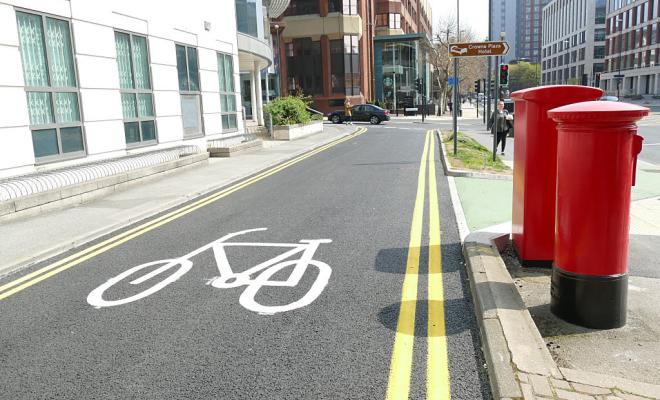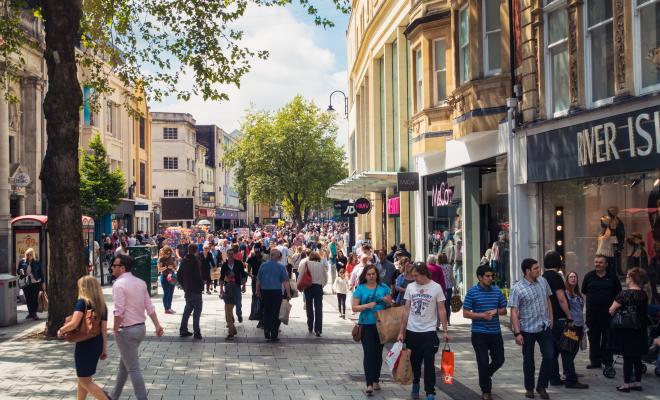25 Sep 2024
Councils, climate and campaigning
Councils and combined authorities need to raise their voice, alongside others, for more powers and resources to take climate action. They must do everything within their power to address the climate and nature crises, but the reality they’re operating in is one of over a decade of cuts to local government funding. This is alongside a UK government that’s failing to address the climate and nature emergencies with the urgency required.
Despite repeated government promises to grant more powers and resources to local areas, and the roll-out of new devolution deals in some places, councils and combined authorities remain hampered by a lack of long-term, stable funding for key climate actions, as well as unhelpful policy frameworks in areas like planning that can stifle ambitious local and regional policies.
There’s an easy way for councils and combined authorities to join others in calling for change, by signing up to the demands of the Blueprint coalition. This is a unique alliance of local government, environmental NGOs and academics, which is making the case for the UK government to empower local authorities to deliver on climate and nature action. If more councils and combined authorities add their voices, the government is more likely to listen.
It’s also important for councils to work with others locally and demonstrate the barriers to action resulting from inconsistent national policy and lack of resources. Evidence from local authorities is now being taken seriously by the Climate Change Committee and the National Audit Office, which have called for changes to policy and funding from the UK government to support local action. But more councils need to add their voices to ensure that government listens.
Councils should know that their calls for more support are also backed by the Climate Change Committee, the National Audit Office and the Independent Review of Net Zero led by former Conservative MP Chris Skidmore. All of these have pointed to the vital importance of local government’s contributions in meeting national climate targets, and have called on the UK government for policy changes as well as funding to support local action.
Following the Net Zero Review, Chris Skidmore also published a report called “The Future is Local” with Tees Valley mayor Ben Houchen, which sets out recommendations to overcome the barriers to local delivery. As well as long-term, stable funding for all of local government, there’s a need to make sure that climate and nature are at the heart of all devolution deals, where new powers and resources are granted to mayoral combined authorities and in some cases county councils.
The target
Councils and combined authorities should aim to make their voices heard by the UK government and secure increased devolution of powers and funding to the local level. They can do this by signing up to the topline demands of the Blueprint Coalition, as well as doing their own lobbying of national government.
Regional mayors should also use their voices to call for climate and nature to be at the heart of devolution deals, with adequate funding and powers to act effectively at this level.
Councils leading the way
Kingston Council signed up to the Blueprint in November 2020. It already plays an active role in lobbying both national and regional government on environmental issues. For example, it’s:
- Raised concerns about proposed changes to planning regulations, the expansion of Heathrow and Gatwick airports, and waste management.
- Lobbied for more clean buses and for active travel funding at a regional level.
Signing up to the Blueprint has amplified the council’s voice, and helped it call for fundamental reform and backing from the government to take more effective climate action.
As well as checking whether an officer or councillor from your local authority has signed up to the Blueprint, you can also check the results of Climate Emergency UK’s council scorecards, which asked councils about whether they’re lobbying national government for powers and resources. You can use the scorecards to compare the actions of your council with other similar councils.
Councils and combined authorities can also join the UK100 group of local leaders who've committed to taking action to reach net zero ahead of the government's target, as well as targeting national decision makers.
Convince your council
Councils and communities are more likely to influence the UK government when they work together. You can make your campaign stronger and more impactful by building local alliances. If most of your interactions with your council involve pushing it to do more, talking about how you can work together to secure more resources for its work could be a way to show your council you’re also on its side when it comes to change at the national level.
If your council thinks that influencing the UK government isn’t worth pursuing, it’s good to remind it that, without campaigning, current and future local residents will suffer. Campaigning isn’t an optional extra, rather it’s intrinsic to councils’ role in addressing the climate and nature emergencies.
Funding and powers
Often, funding for climate action comes via short-term, competitive grants. What councils really need is long-term, stable funding, especially to grow the links and partnerships needed to build skills and supply chains locally for key activities such as retrofitting housing. National spending is also still funding the wrong kind of infrastructure such as new roads.
National policy in key areas such as planning still isn’t fully aligned with climate targets, which makes it harder for Local Plans and local decision makers to insist on zero-carbon development and reject high-carbon development. In England for example, national planning policy steers Local Plans and planning decisions. Although reductions in greenhouse gas emissions is a key objective, the national policy lacks the specific requirements to ensure this aspiration is effectively implemented, and it contains contradictions as well.
That means practice varies hugely from council to council, and in some cases ambitious local policies have been overturned by the national Planning Inspectorate. The planning system needs to be reformed so that every decision has to be in line with climate targets. National planning policy also needs to be radically revised to enable all councils to secure high-quality, low-carbon development.
You can find out more detail about what the Blueprint Coalition has said is needed from national government to support councils in key policy areas, including planning, energy, waste and consumption. The coalition has assessed how the government is doing so far in its progress tracker.
Helpful resources
Watch our training video and learn how your council can campaign for more funding and powers:
Find out how you can build a strong campaign to push your council to take ambitious action in this area.
Get to grips with how your council works.
Read more examples of best practice by councils.
Find out more about devolution deals in England and how they need to be improved for climate and nature.
Any references to national policy in this guide relate to policy under the previous government and reflect the policy context at the time it was written.



